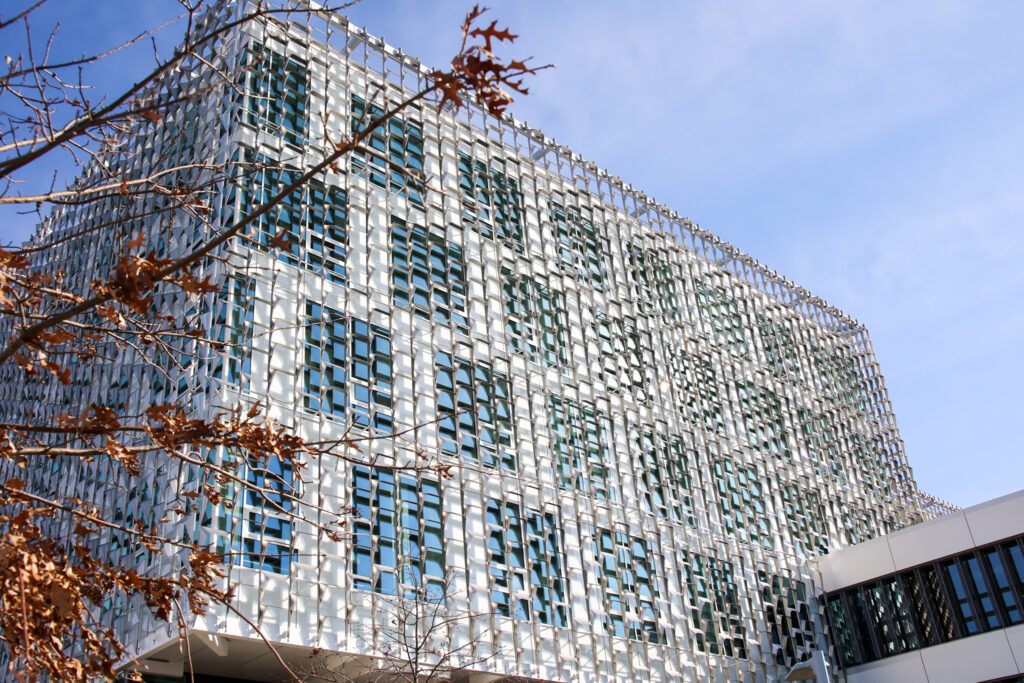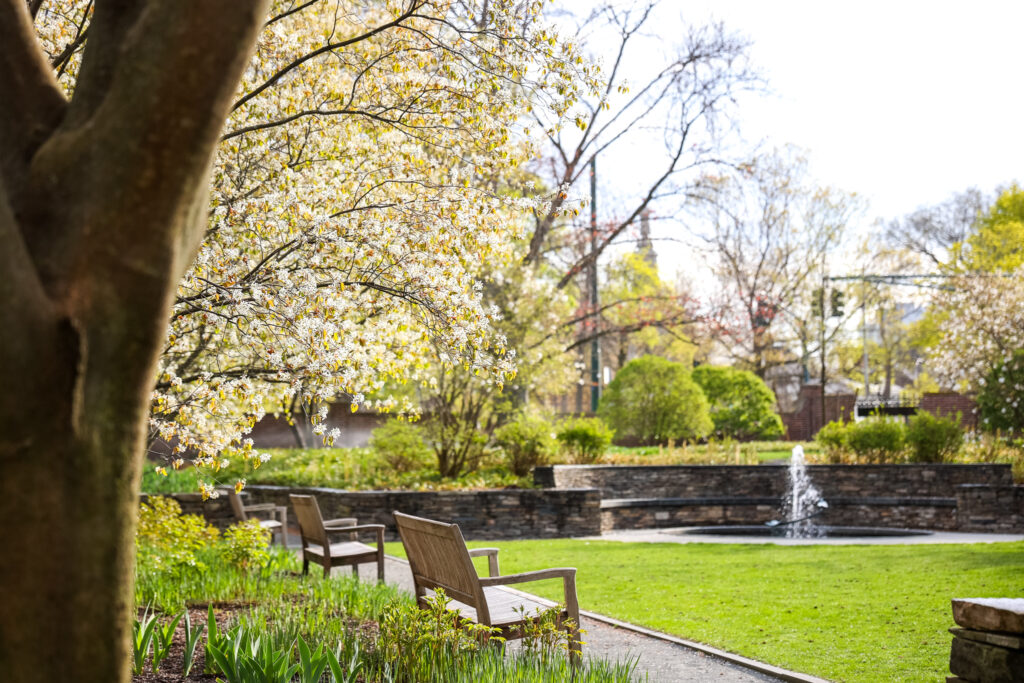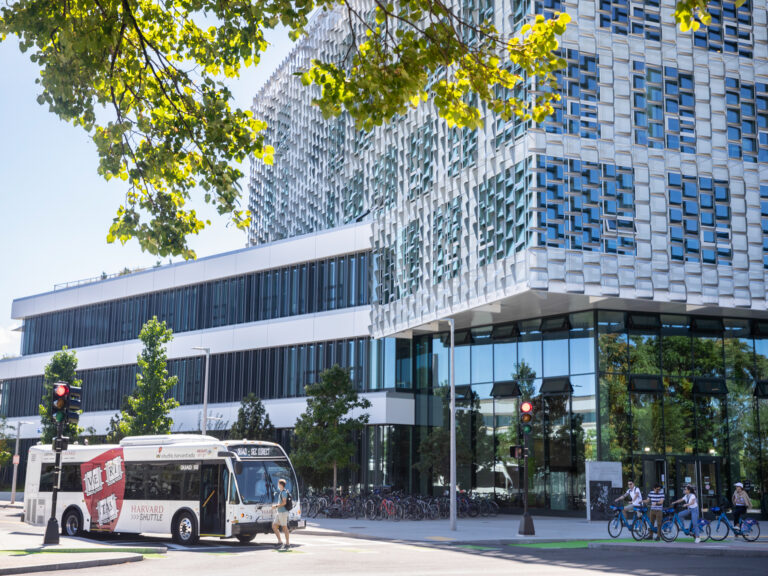REDUCING WATER USE AND POLLUTION AT HARVARD
Sustainable Water Management
Harvard aims to reduce University-wide potable water use and pollution. We are incorporating these priorities into Sustainable Building Standards and Sustainable Site Maintenance Standards for landscaping.
Harvard will continue to sustainably manage its on-campus stormwater and runoff while leveraging research related to water pollution and public health, such as the dangers of poly-fluoroalkyl substances (PFAS), to inform purchasing decisions that can have impacts along the value chain.
Sustainable Water Management Spotlight:
Science and Engineering Complex

- Bioretention basins and swales capture rainwater and direct it into a 78,000-gallon rainwater reuse tank.
- Berms and plantings, integrated throughout the landscape, help to mitigate storm surge risks while minimizing water waste and downstream pollution.
- For irrigation, the SEC uses reclaimed water and underground drip tubing that provides water directly to the soil, limiting evaporation.
- Rainwater is redirected from sidewalks to irrigate trees and plantings, while recessed gardens and green roofs enhance management of runoff.
- Devices such as low-flow fixtures and automatic faucets reduce indoor water use by 70 percent, and water bottle refilling stations throughout the building provide filtered water, alleviating the need for single-use plastic bottles.
Increasing Water Efficiency at Harvard

Harvard plans to conduct a holistic water impact assessment to help prioritize which additional strategic investments should be made to further reduce potable water use and reduce water pollution on campus and throughout the value chain.
Harvard’s Schools and Units have invested significantly in water-saving fixtures and technologies to reduce consumption. Improved building and landscaping have also reduced water use and consumption in the University’s energy plants.

Rooftop gardens reduce stormwater runoff

2M+ Gallons of irrigation water saved

Irrigation-free lawn
How We Operate
Harvard is accelerating new systems that enable healthier, low-carbon living—creating systems that can be scaled and adopted more broadly.
